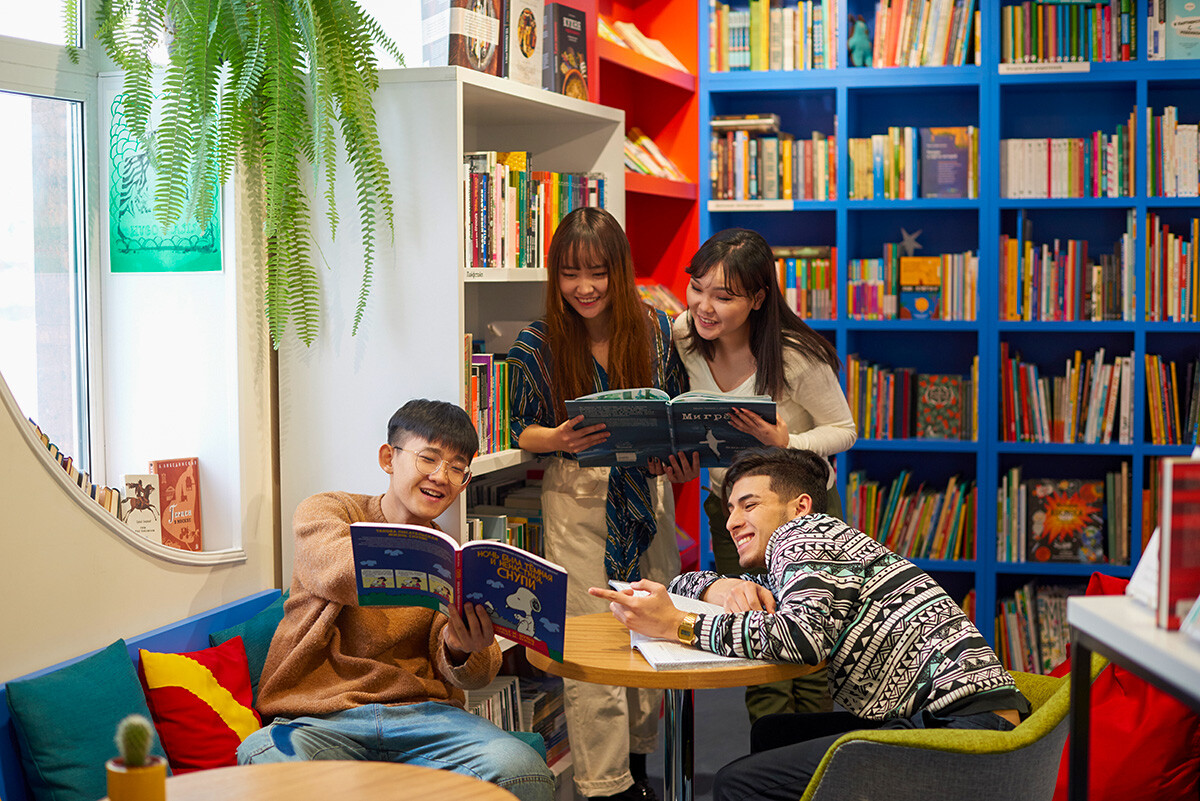
The University of Tyumen is one of the participants of the government program ‘Priority 2030’. The key goal of the University of Tyumen is its leadership in the Western Siberian educational cluster. For that, the university is implementing five strategic projects in relevant areas: ‘Biosafe world’, ‘Future ecosystems’, ‘Nature-inspired engineering’, ‘Multi-paradigmal education’ and also ‘Steady development of the macro-region’.

For instance, the goal of the strategic project ‘Steady development of the macro-region’ is the transformation of the university into a driver of the innovative and economic development of the entire Western Siberian macro-region. For that, the University of Tyumen plans to boost the quality of their human capital, expand the range of their educational programs and achieve cutting-edge scientific results.
The past decade was a period of the University of Tyumen’s rapid development. The university turned from an educational institute of regional significance into a pioneer of educational innovations on a national level. In 2019, it became a base platform for the formation of the world-class West Siberian Inter-regional Scientific and Educational Center.
As part of this transformation, the university launched a range of projects and platforms – the so-called “greenfields”.
The University of Tyumen
For instance, on the basis of the University of Tyumen, the School of Advanced Studies (SAS) and the Institute of Environmental and Agricultural Biology (X-Bio) were launched. At SAS, innovative methods of education are being implemented and foreign specialists from different countries are teaching.
The growth of grants that the scientists from the University of Tyumen receive, is a relevant indicator of the university’s development. Over the last 10 years, the amount of grants received by the research teams of the University of Tyumen increased 6.7 times and has reached 80.
In their research, the university employees are focusing on several important areas. First of all, it’s biosecurity – several research teams are involved in the interdisciplinary work in this field. By 2021, the University of Tyumen placed first in Russia in the field of entomological research, second – in the field of soil science and third – in scientific disciplines focusing on plants and animals. Research teams of the University of Tyumen are conducting fundamental and applied research. For example, the University of Tyumen has conducted research and development work for the Russian oil industry.

In the development strategy, a special role is allocated to personnel policy. Over the last years, the university has been actively looking for and hiring scientific and pedagogical workers under the ‘New Faces’ program. As a result, over the decade, the university managed to renew its personnel by 30% and also rejuvenate it – the share of young workers today is about 28%. It also managed to attract foreign scientists and Russians who have academic degrees in leading foreign universities – over 10 years, their share increased from 0.2% to 8.2%.
The transformation has also impacted the students of the University of Tyumen. They are actively being involved in not only social, but also entrepreneurial projects. For instance, talented students with the university’s support can found start-ups and cooperate with innovative enterprises.
All of this, along with the increasing prestige of the University of Tyumen, raised the university’s attractiveness in the eyes of the applicants. It resulted in a 27% increase in the amount of full-time students over the last years.
The amount of foreign students rose as well – by 2020, their share was almost 11% from the overall amount of full-time students.

Over the last five years, the university has implemented a flexible approach to education that allows it to adjust the university education system to the individual needs of its students. Within this new model, that was named ‘2+2+2’, students can transition between programs during their study.
The first two years are dedicated to general education disciplines, worldview development and students’ critical thinking. After successfully completing this stage, students can choose the profile direction that interests them the most and continue their studies. In two more years, students have an opportunity to adjust their educational vector again.
To change their profile, students have to cover the academic difference – they can do so during their “summer semester”. Over this period, everyone willing can undergo additional training that would allow them, with the start of the new study year, to continue their studies with a new specialty. At the university, there’s even a specialist who can help students make the right choice – a tutor. They consult students who express their interest in changing their study direction and help guide them among study programs.
Such a system is easily adjustable to students’ interests that tend to change as they mature. The ‘2+2+2’ formula stands for two-level bachelor’s degree (or a specialist’s degree) and a master’s degree. The new flexible model is already put in practice at the University of Tyumen – all those who have enrolled in full-time studies in 2022 study under this program.
There’s also a system of electives at the University of Tyumen – courses available to all students. There’s around 700 such elective courses in the University of Tyumen’s arsenal that are selected on a competitive basis.
If using any of Russia Beyond's content, partly or in full, always provide an active hyperlink to the original material.
Subscribe
to our newsletter!
Get the week's best stories straight to your inbox